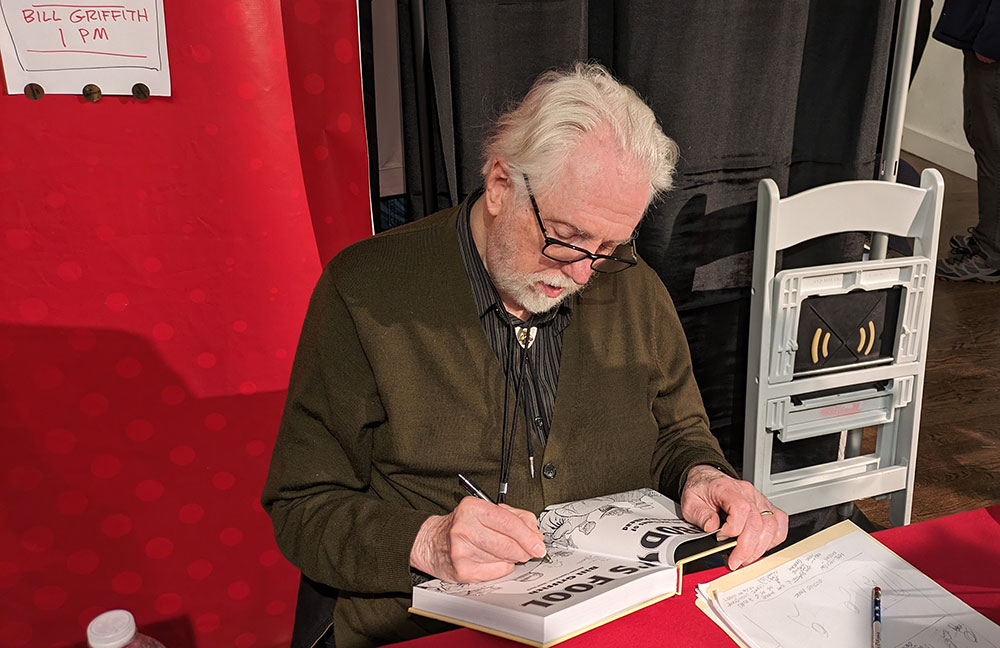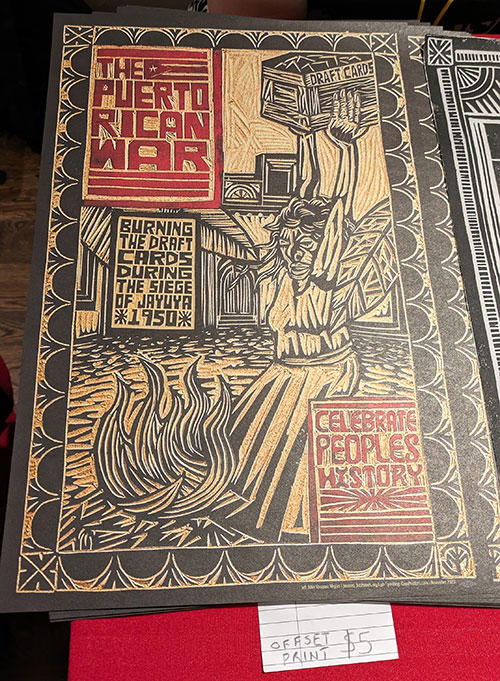I went to MOCCA 2024 and had my usual experience, a little let down, but with a few real diamonds in the rough. This is not a full-blown review, but a list of the things that really stood out to me.
I’m a little depressed and a bunch of MOCCA is tables of fairly banal image making with very little thought behind it: intellectual property incubators for alternative universes, mechanical expertise and thoughtless execution, and edgy/overly empowering scribbling.
There were a few pretty cool things.
John Vasquez Mejias’s The Puerto Rican War in woodblock prints looks pretty incredible. They didn’t have copies in print, but there’s a new publisher, they might even have some available on day two, and it was impressive looking.
Star Shen is an illustrator and paper engineer who makes pop-up books. She has one about a trip to Mars and another one that was called Pop-Up: a City of Mountains. The English version is going to be out next month, but even the Chinese language version I could not read was incredibly cool. In an alternative universe, I would be making pop-up books.
Kent Worcester had a hard pitch for his book that seems like it was written for just the right time: A Cultural History of the Punisher. I have not read it yet, but I get the sense that if you too are a little peeved about the ubiquitous Punisher/Thin Blue line imagery, this book may be for you. The TCJ wrote about it here.
I did not read or buy Evil Eyes Sea by Ozge Samanci, but it was one of the few books I came across that truly seemed bursting with ideas.
Several years ago, I saw a table by Beehive Books and this really crazy book by and about Harrison Cady. It kind of blew my mind and for the last several years, I was sort of looking for it, but couldn’t find it anywhere, couldn’t remember the artist’s name, and it’s been a bit of my white whale. It is like finding another Winsor McKay and when I googled McKay’s name to make sure I was spelling it right, google helpfully showed me all my searches for figure out what the fuck Harrison Cady’s name was. My google-fu failed. Being the largest and most expensive book there (as well as fabulously designed and printed), I bought it as a gift to myself. The title is Madness in Crowds: The Teeming Mind of Harrison Cady and it is amazing.
Last year, I turned the corner and met Bill Plympton which kind of blew my mind. This year, I thanked Mattie Lubchansky for all that they did with The Nib and all their art, got to ask the always inspiring Gideon Kendall about his technique as well as pepper some questions to Eyeland’s Nick Forker, but then I turned the corner and there was Bill Griffith.

Bill Griffith still draws Zippy The Pinhead that we’ve all seen in the back of alt-weeklies and underground papers for decades. He wrote a few books, one of which was Nobody’s Fool: the Life & Times of Schlitzie the Pinhead and I bought a copy and he signed it and drew me a picture. I started reading it on the way home and it’s great.
There was no line for Bill. There were other lines for drawing that I don’t think I entirely understood, there was a bunch of comics that just seemed like the most liberal claptrap imaginable fucking up Latin American history, what is happening in Ukraine and China and Cuba, enamel pins and detritus, and a lot of work that screamed punk rock edgy forty years too late. But there were a few glimmers in all that and being starstruck for just a moment by the old man making the weird coming in the back of the papers that suggested there was a different way of seeing things, well, that was worth the price of admission.
